Lawn diseases are a nuisance, hindering your turf's health and curb appeal, and there are three to be on the lookout for in Alpharetta, GA, including powdery mildew, leaf spot, and anthracnose. If left untreated, these diseases can cause significant damage to your lawn, and it's crucial to know the signs and differences of each so you can catch an infection as soon as possible. To prevent an outbreak, it's important to practice routine lawn care, such as fertilizing and aerating your turf. However, if one of these fungal diseases infects it, the best course of action is to schedule professional lawn disease control treatments. These treatments will eliminate the infection to prevent it from causing any further damage.
1. Powdery Mildew
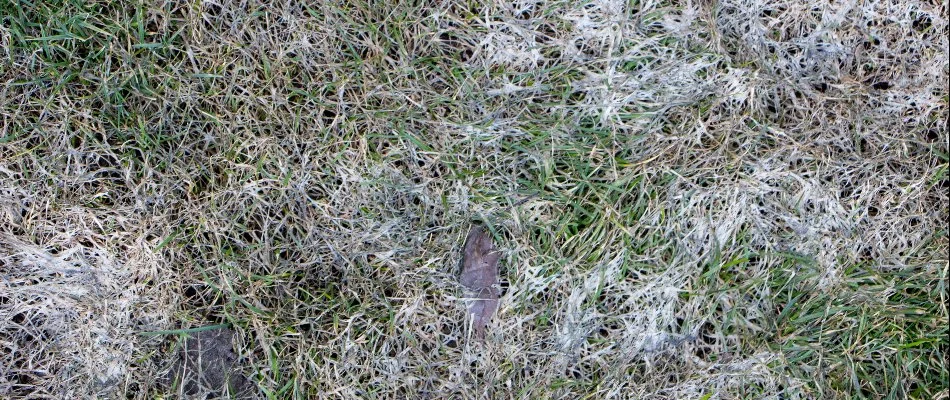
Powdery mildew is a relatively common fungal disease in Alpharetta, GA, that you'll want to look out for. It typically appears as a white, powdery substance on the grass blades. The disease thrives in cooler, humid weather, making it a common problem during the spring and fall months. It usually infects turfs in shady areas, and if left untreated, powdery mildew can cause the grass to turn yellow and wilt.
In terms of preventing powdery mildew from forming, proper lawn care is the best way to keep this fungal disease from causing problems in the first place. For example, you can ensure your turf has adequate airflow with aeration, which loosens compacted soil to help resources reach its roots. Routine fertilization can also help ensure it's strong enough with all the nutrients it needs to naturally resist this fungal disease. However, if it has already taken hold, it’s best to schedule a curative lawn disease control treatment to eliminate it so it doesn't continue to cause damage.

Powdery mildew is a lawn disease that produces spores, meaning it can easily and quickly disperse across your turf and landscape plants.
2. Leaf Spot
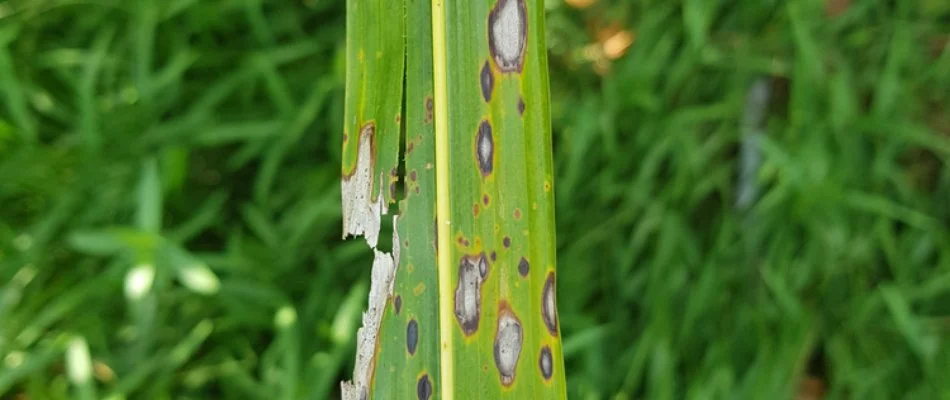
Leaf spot is a fungal disease that affects many types of grasses. It appears as brown or yellow spots on the blades of grass and can quickly spread throughout your lawn, thinning and even killing the foliage in severe cases. The disease also thrives in warm, humid weather, making it a prominent issue here in Alpharetta, GA, during the summer.
To prevent leaf spot, it's essential to practice regular lawn care. Fertilization, aeration, and overseeding will keep your lawn healthy, ensure it has optimal access to everything it needs, reduce thatch buildup, and make it thicker and denser to improve its defenses against this fungal disease. However, if it has already infected your turf, you'll want to invest in professional treatments to stop the spread.
3. Anthracnose
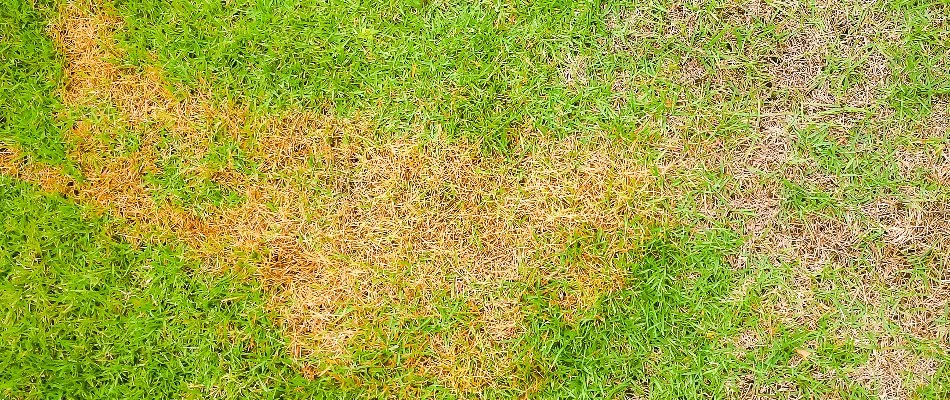
Anthracnose is a fungal disease that affects lawns in Alpharetta, GA, and can establish under periods of stress. For example, poor soil conditions, air circulation, and improper drainage are common stressors for your turf that can lead to this disease establishing. It appears as brown or yellow patches of grass and can quickly spread if left untreated. To prevent anthracnose, you'll want to aerate your lawn to ensure the soil isn't compacted and improve airflow to its roots. Regularly fertilizing it will also ensure it stays healthy and strong enough to fight off this disease. If you notice signs of it already, you'll want to contact pros immediately so they can administer their curative treatments to eliminate it.
Call us to sign up for our lawn disease control service today!
If you're noticing signs of powdery mildew, leaf spot, or anthracnose on your lawn, look no further than our lawn disease control service! At TurfXpert, we can tackle these and other fungal diseases to ensure your turf stays healthy and beautiful. We also offer lawn care services, such as fertilization, aeration, and overseeding, to keep it in tip-top condition to naturally resist infections!
We offer our lawn disease control service to residential and commercial properties, as well as HOAs, in Woodstock, Roswell, Alpharetta, and other nearby communities in Georgia. Call us at (833) 444-8873 to sign up today!

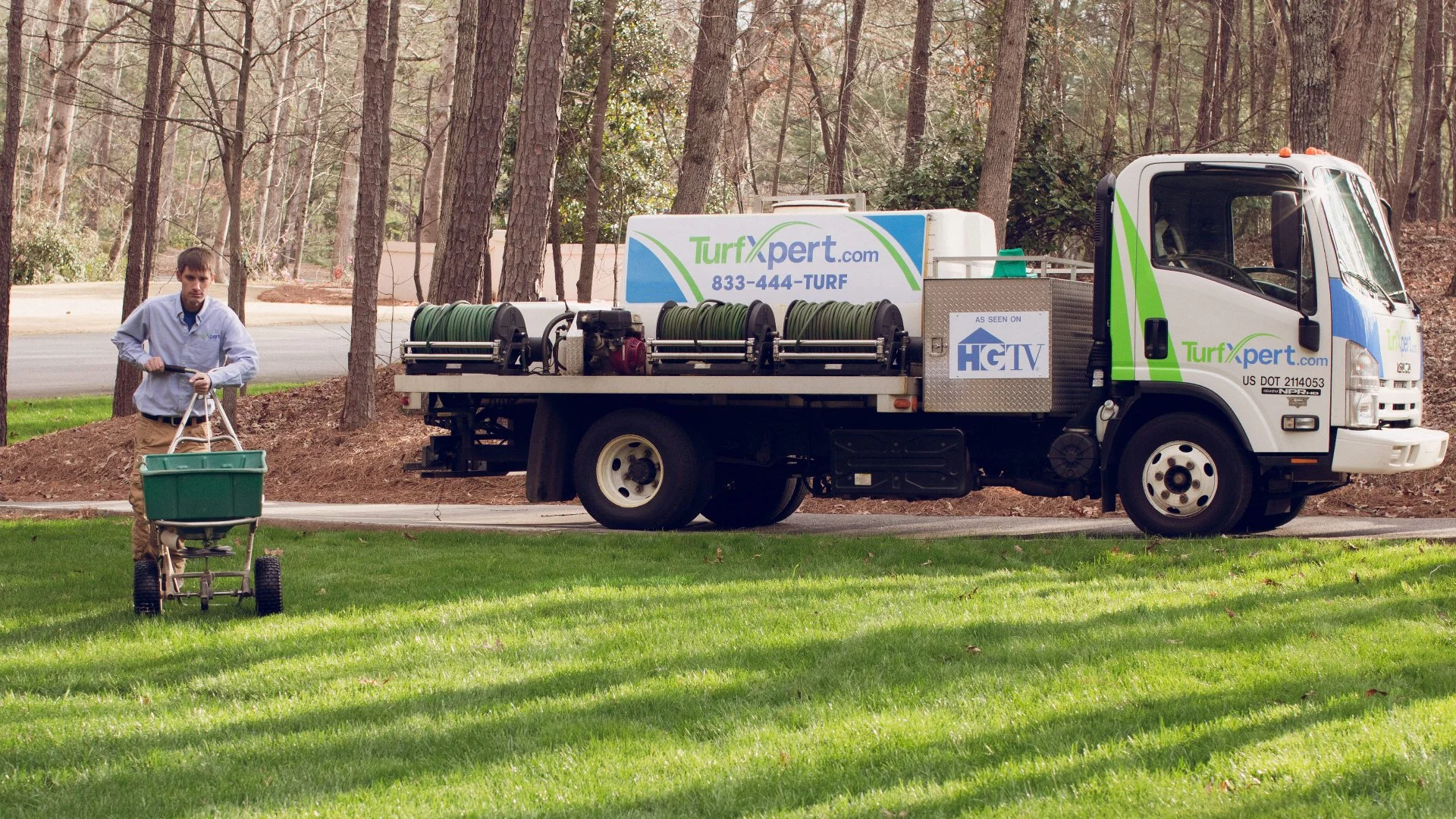
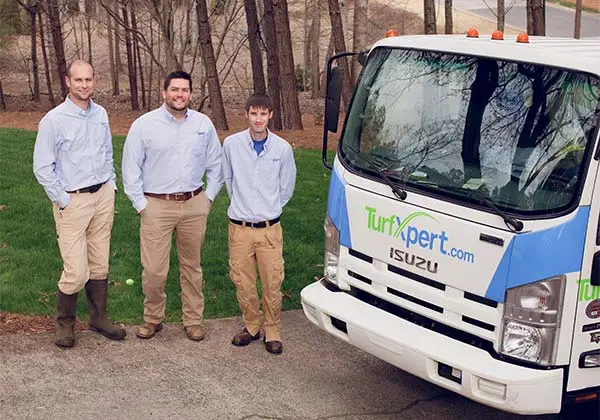

Comments (0)
Thanks for your comment!
Thanks for your feedback! Your comments have been successfully submitted! Please note, all comments require admin approval prior to display.
Error submitting comment!
There is a problem with your comment, please see below and try again.